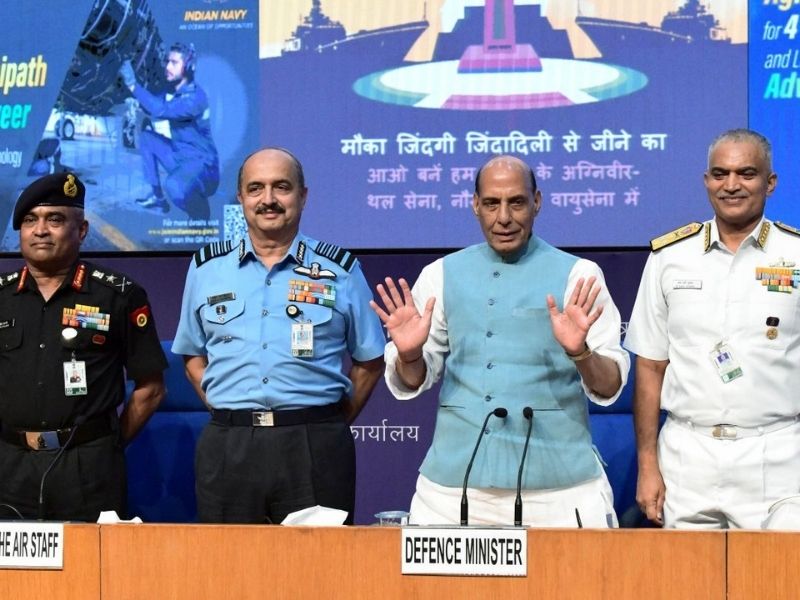
The violent protests that erupted last month countrywide against the Central government’s Agnipath armed forces short-term recruitment scheme have further destabilised the post-pandemic economic recovery process already slowed by communal violence, rising unemployment and inflation.
The Agnipath schema reduces the tenure of new recruits into the defence services — army, navy and air force — from 14 years with pension and medical coverage, to four years without these benefits. According to government spokespersons, the Agnipath scheme will reduce the average age of serving defence personnel to 26 (from 32 years currently), slash the services annual pension payout by Rs.34,500 crore annually, releasing resources for induction of new age technologies and equipment into the defence services.
Undoubtedly, there is considerable substance in the new schema which is fully backed by military top brass. Since the introduction of OROP (One Rank One Pension) in 2014, the government’s military pension bill has risen from 19 percent in 2020-21 to 26 percent of the defence budget (Rs.5.2 lakh crore in 2022-23). Against this, in the US, pension payout aggregates 10 percent of the defence budget and 14 percent in China. Clearly, with 55,000 retirees added annually to the already extant 3.2 million defence services pensioners, the number of foot-soldiers being absorbed in the 1.1 million-strong Indian defence services had to be reduced to curtail the pensions bill to release resources for modernisation of the three services in the new age of technology-driven warfare.
Nor is a four-year stint in the armed services as bad a deal as the nation’s rampaging youth have been led to believe. Four years of training in the highly disciplined defence services is a great opportunity to acquire hi-tech skills which will benefit 75 percent of youth demobilised at the end of four years. Arguably, this is a preferable option to enroling for a three-year degree programme in state government undergrad colleges offering obsolete curriculums and poor learning outcomes. Especially since at the end of their four years service, unretained soldiers will receive a Rs.11 lakh severance package which could bankroll small businesses and enterprises, especially if collectively promoted.
Moreover, Agniveers not retained will have the option of availing 10 percent quotas in the Centre’s paramilitary force and defence public sector enterprises. In the circumstances, the national interest demands that protesting youth should accept the new Agnipath scheme.
However, peremptory introduction of the Agnipath recruitment initiative has again highlighted the proclivity of the BJP government at the Centre to introduce important legislation without adequate ground preparation. It’s pertinent to note that demonetisation, the national pandemic lockdown and the necessary farm reform bills were sprung on citizens at short notice, without adequate debate in Parliament or public forums. Greater awareness of the grammar of democratic politics could have saved the economy and public great damage and grief.